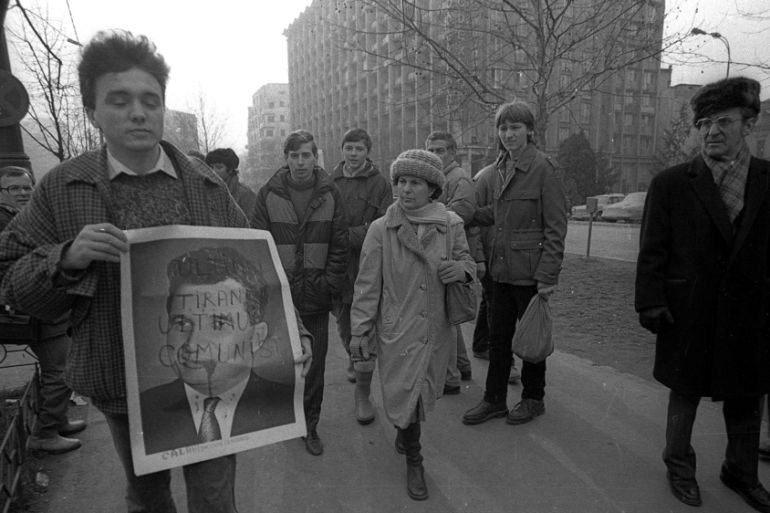On this day: 30 years since Nicolae Ceausescu was executed
After a bloody revolution, Romania’s communist leader was charged with genocide and executed along with his wife Elena.

Wednesday marks 30 years since Nicolae Ceausescu, Romania’s authoritarian communist leader, was deposed and executed – an event that signalled a new beginning in the country following a bloody revolution.
In December 1989, Romania was shaken by 10 days of protests that led to the fall of Europe’s last communist leadership.
The protests started in Timisoara in the west of the country and spread to Bucharest, causing leader Ceausescu to flee on December 22.
Ceausescu was executed on Christmas Day along with his wife Elena. More than 1,000 people died in the crackdown on protesters before and after Ceausescu’s death.
On Sunday, thousands marched in the capital Bucharest to remember those who lost their lives in the uprising and observed a minute’s silence in Revolution Square.
They released hundreds of balloons, which organisers said represented the 1,142 people killed during the uprising.
The revolution was sparked on December 16, 1989, when authorities tried to forcibly move an ethnic Hungarian pastor, Laszlo Toekes, from his home in Timisoara to a remote rural parish.
Up until December 22, 1989, it was Ceausescu who gave the order to the army and the security forces to fire on protesters.
But most victims died after he had been toppled from power and when Ion Iliescu had taken over. Iliescu is currently on trial, accused of crimes against humanity for his alleged actions.
Nicolae and his wife Elena were convicted of genocide and executed on December 25 in the back yard of a military unit approximately 80km (49 miles) northwest of the capital Bucharest.
“We want to know the truth about December 1989,” current President Klaus Iohannis said this week.
“We want the guilty to be judged and for justice to be done.”
Romanians have spent the past week in reflection and remembrance.
“It’s thanks to those who died in December 1989 that we live in a free country,” said 52-year-old Veronica Nicolau at Sunday’s rally.
“I came to express my gratitude to these young innocents who were killed in cold blood,” said Petre Cojan, a 73-year-old pensioner, close to tears. “One day, we will know the truth and then we will finally be able to celebrate the revolution rather than just commemorating it.”